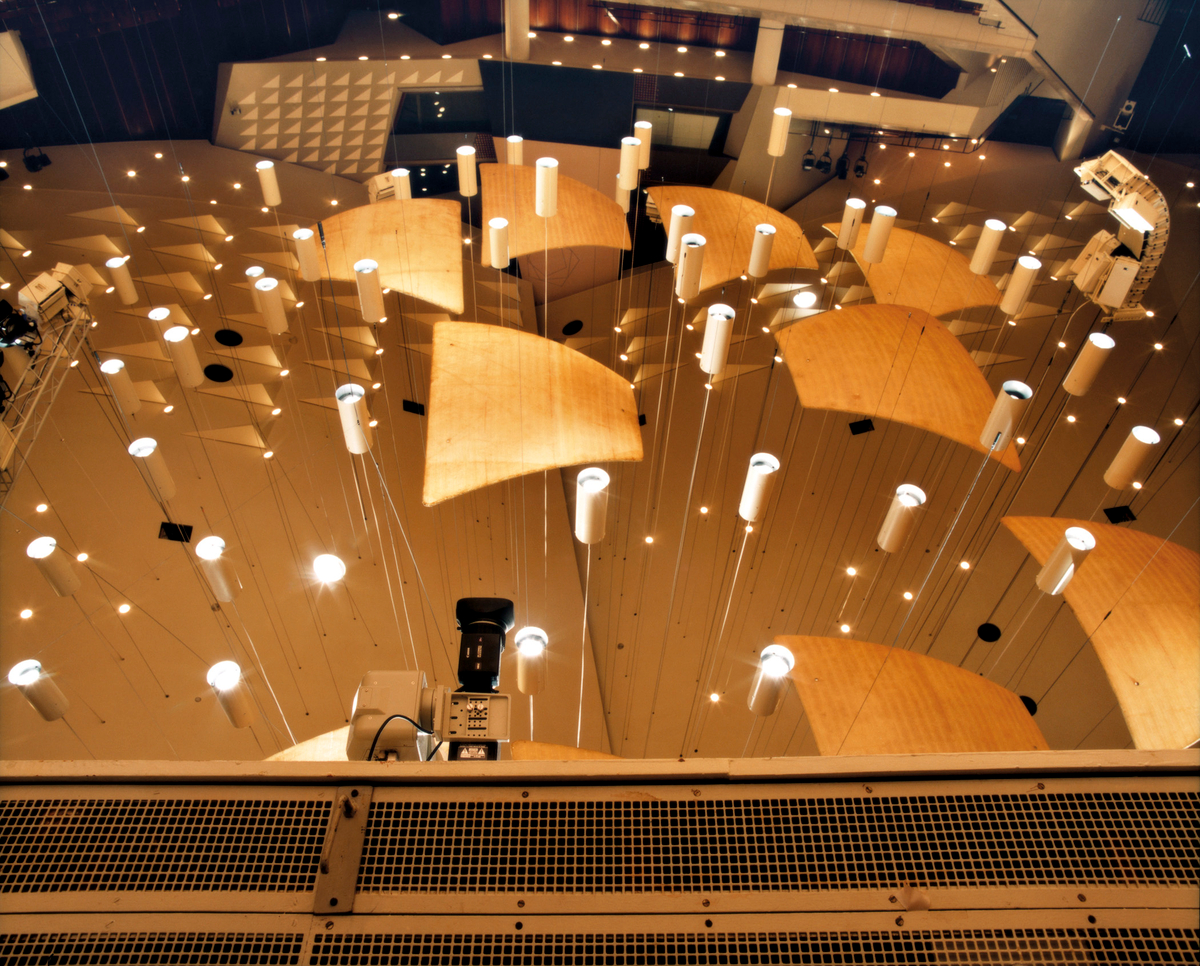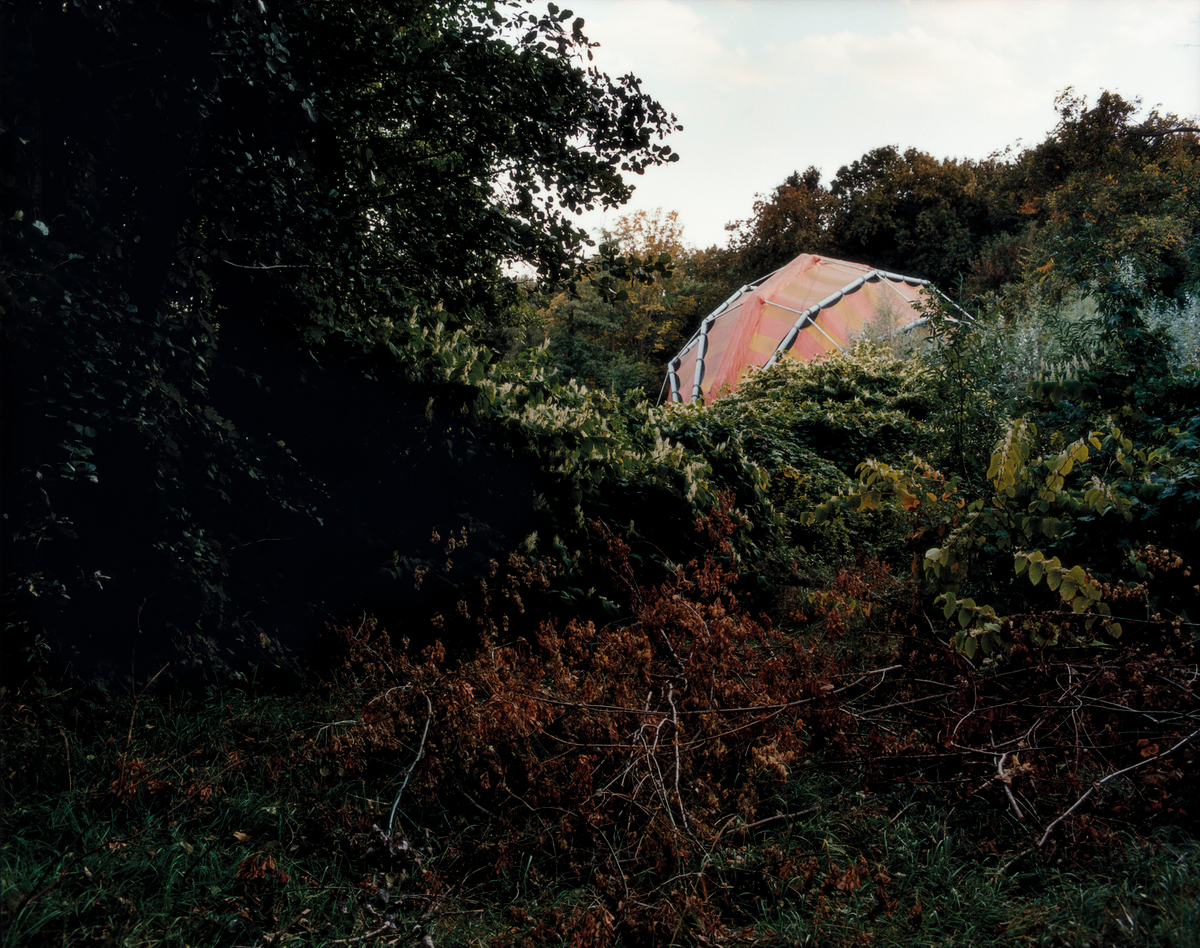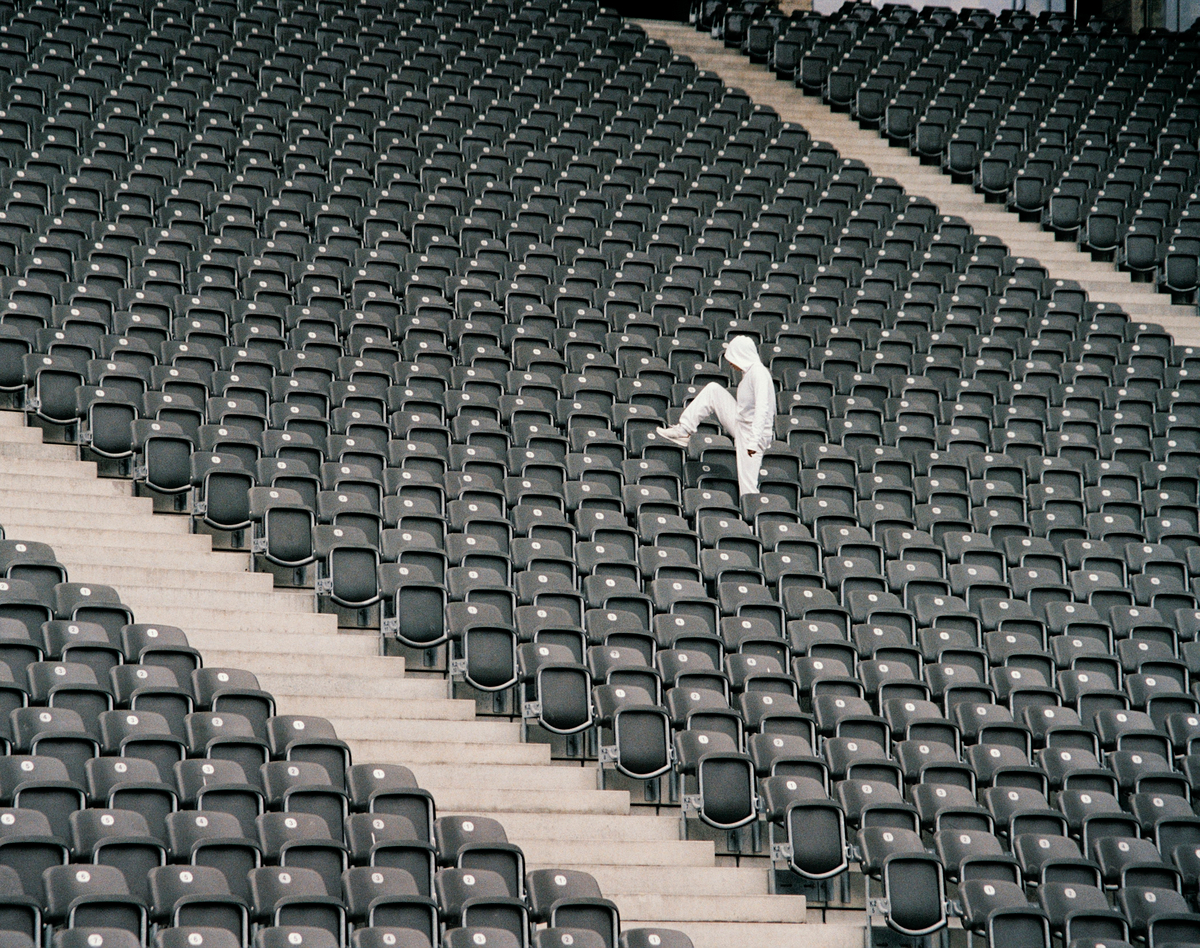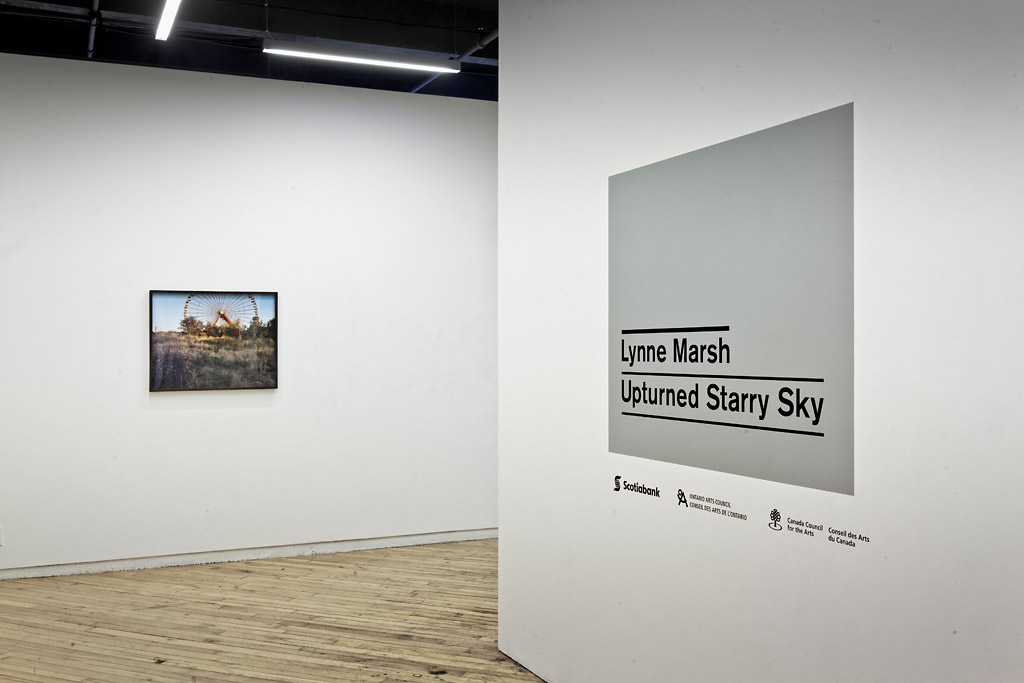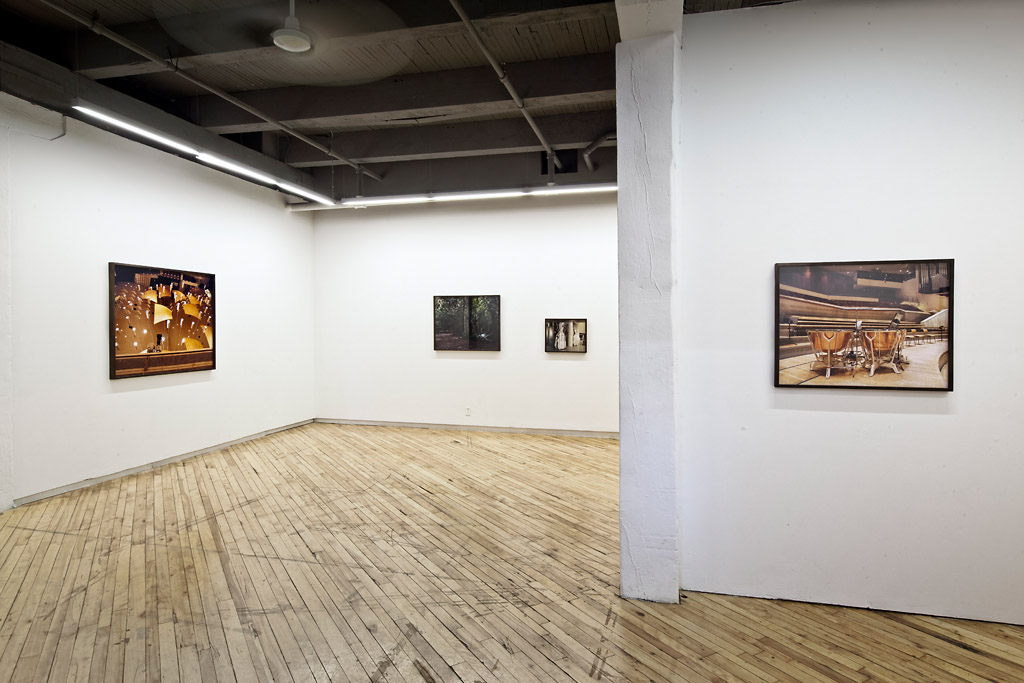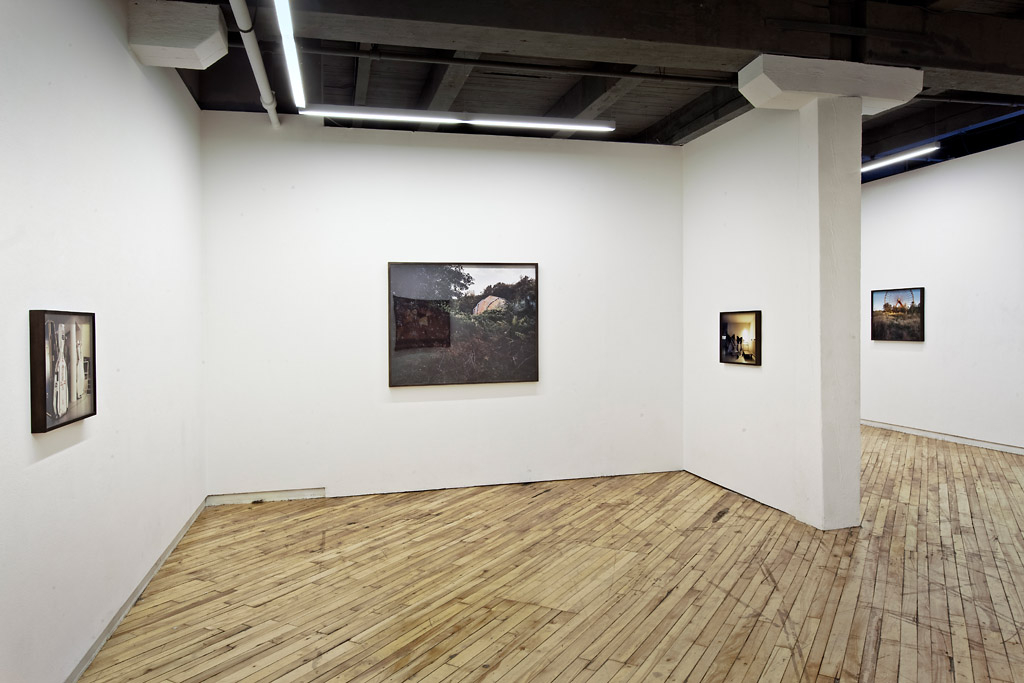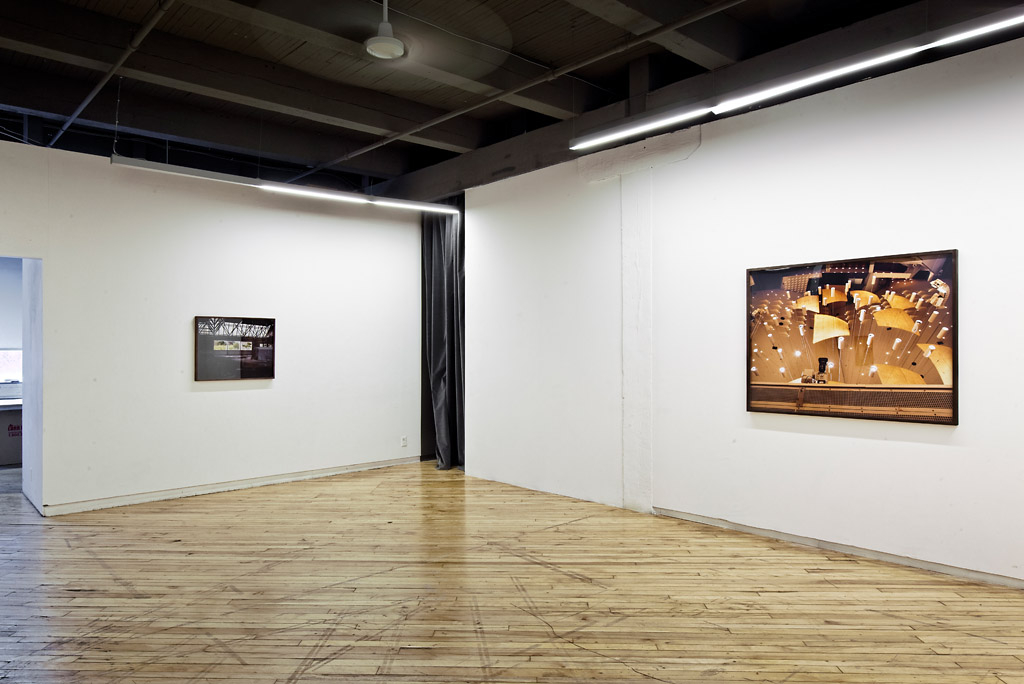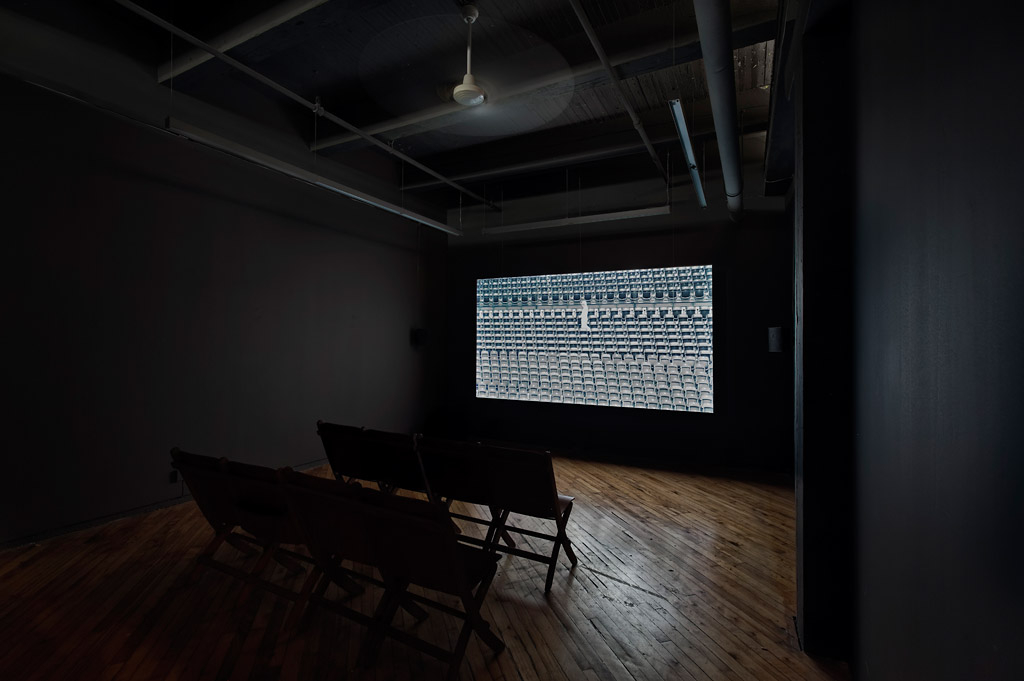Upturned Starry Sky
Upturned Starry Sky presents a selection of works by Lynne Marsh (b. Canada, based in Montreal, Berlin, and London, UK) that come together under the rubric of spectacle. Engaging with three sites in Berlin—an empty sports stadium, a disused amusement park, and the interior of the city’s iconic orchestral concert hall—Marsh positions the viewer as participant in the social relation that gives each location its essential meaning. Writing in 1967, French thinker Guy Debord stated “The spectacle is not a collection of images; it is a social relation between people that is mediated by images.” This quote points us to a consistent element in Marsh’s exhibition—which also relates to her art practice as a whole—the camera that depicts each of her subjects. Aligning the eye of the viewer with the camera lens, Marsh positions the viewer within the latent spectacles her artworks embody.
Marsh’s photographs share a focus on the mise en scène—the stage and backstage—of contrasting forms of entertainment. Shot during the production of two recent film projects, the photographs depict sites of performativity in which the implied audience is the cohering element. Kulturpark Plänterwald was an amusement park built in 1969 in the former German Democratic Republic and abandoned after unification. Devoid of human presence, the images in Plänterwald (2010) reveal the decayed structures and overgrown landscape of the derelict site. A Ferris wheel and other rides stand motionless, the dead space becoming theatrical scenery for a dystopian tale that, rather than being about some future society, conveys a message about social and economic conditions in Berlin today. The photographs in The Philharmonie Project (2011), also absent of people, document the scene behind-the-scenes inside Berlin’s internationally acclaimed Hans Scharoun-designed Philharmonie building. Lyrical yet somehow menacing, two photographs depict idle orchestral instruments that function like stand-ins for the players in dialogue with viewers. Another image, an upside-down shot of the Philharmonie ceiling lights, is the starry sky of the exhibition’s title. The photograph suggests how art can upend the everyday, and sets the stage upon which the viewer can enter into an imaginary space that is, in part, of his or her own devising.
The symbolically-charged Olympiastadion, a prime example of Fascist architecture, was built in Berlin for the 1936 Summer Olympics and used for Nazi propaganda purposes during the games’ opening ceremonies. Marsh’s video, Stadium (2008), presents the vast site as empty but for a sole figure—a young woman dressed in white athletic gear, her face somewhat obscured by the hoody she wears. Dwarfed by the stadium’s scale, she performs methodical choreographed movements amongst the 75,000 seats. The architecture of the stadium appears as a dominant entity, one with an apparently infinite power to encompass the protagonist. Combining actual footage with computer-generated imagery, the work is accompanied by a soundtrack reminiscent of a score in an Alfred Hitchcock film. The camera hovers above and swoops down on the stadium seats, its movements mimicking the choreography of the televised sporting events that normally occur at this site. The artist’s use of camera movement is also explicitly intended to recall the history of the location, home to the production of Leni Riefenstahl’s film Olympia (1938), which was a propaganda exercise par excellence. In the same way that the artist mirrors moments in time—suggesting parallels between different eras in the stadium’s history—she uses the omniscient perspective taken by the camera to suggest continuities in the way spectacle is produced as a means to empower and control the audience.
The spectacle, in whichever form it takes, is the most tangible meeting point between the individual and the collective entity that is society. Through an emphasis on absence and anonymity in her artworks, Marsh strives to make social relations evident as a means to impress on the viewer the active role they play in the production of meaning. Like the young woman in the video, who becomes an almost abstract entity when engulfed by the stadium architecture, Marsh finds effective ways to dramatize the processes by which the individual is knit into the collectivity.
Curated by Bonnie Rubenstein
